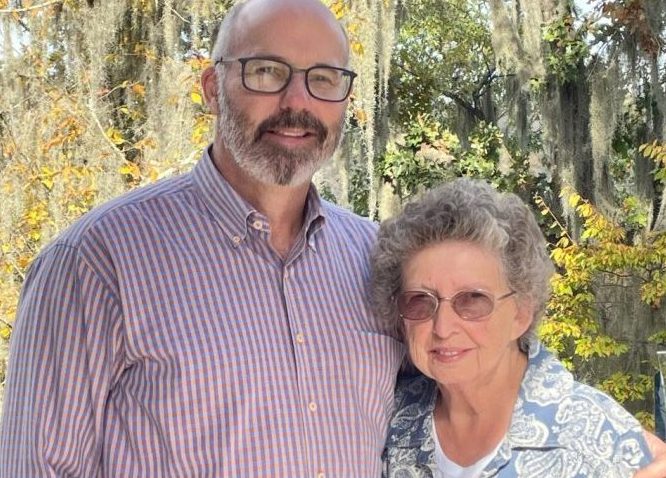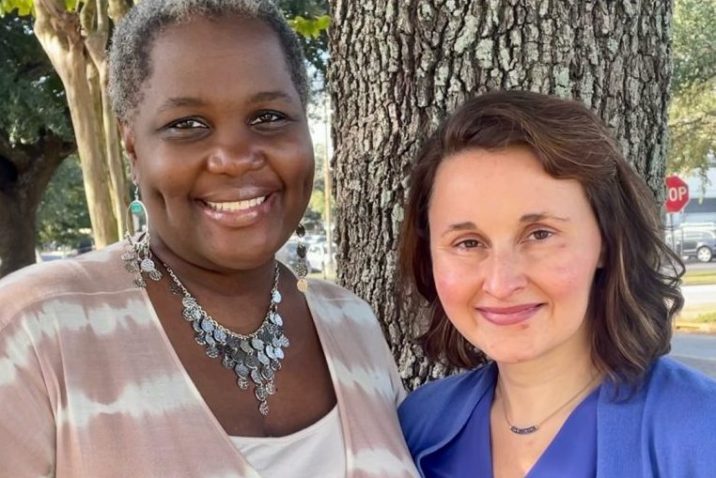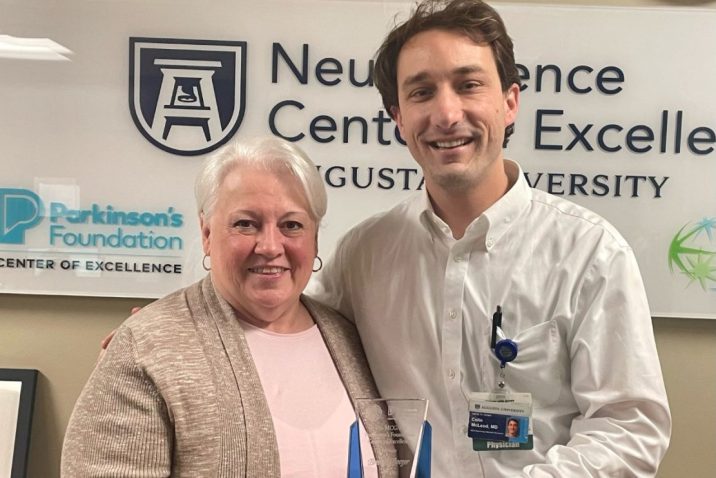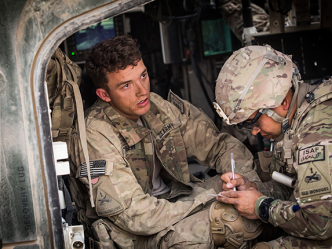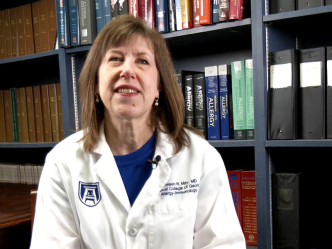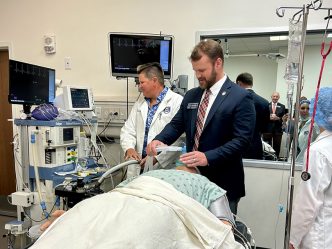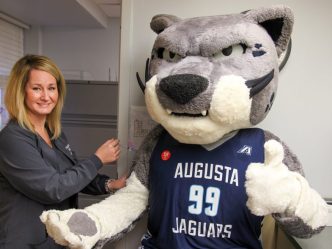Parkinson’s disease affects seven to 10 million people worldwide, with the number in the United States close to one million people. While most of those diagnosed are over the age of 65, it can affect much younger age groups as well.
For the past 20 years, the Medical College of Georgia at Augusta University has been designated as a Parkinson’s Foundation Center of Excellence (COE), one of 33 designated centers nationwide.
The MCG COE offers many services to help patients, such as neurologists who are trained in movement disorders or specialize in Parkinson’s disease, social workers, mental health professionals, therapists and speech-language pathologists. There are also ongoing clinical trials to get new medications approved.
The COE also offers community-based educational events and promotes patient engagement to help those affected by the disease.
The criteria of being a COE is stringent, ranging from comprehensive care of patients, research and clinical trials to professional training, community education and outreach and collaboration with the Parkinson’s Foundation.
The COE designation brings with it a level of prestige and emphasis to keep the highest quality of care possible.
“It’s a big sense of pride, but also responsibility that I feel,” said Dr. Julie Kurek, medical director of the COE. “We’re honored to have that and I feel driven to maintain that and really deliver on what these patients need.”
Parkinson’s disease affects the central nervous system, and no two people are alike in how they are affected. A care partner plays a vital role in helping with everyday tasks most take for granted.
“We’re really trying to improve quality of life. A big part of that is taking care of the care partner as well. If the care partner isn’t doing well, that can leave the Parkinson’s patient stranded. So it’s an ecosystem,” said Kurek.
COE coordinator Martha Anne Tudor said when the pandemic hit, caregiver burnout became more prevalent. Gone were the opportunities for a patient and their caregiver to have a gathering with friends that helped keep sprits high.
This year, the COE recognized three care partners for their extraordinary acts of sacrifice and commitment by creating the Parkinson’s Care Partner Award.
Joyce Stump, Brenda Boozer and Kelly Spain are this year’s recipients. Each received an Amazon gift card and a crystal trophy and will also be featured on the Parkinson’s Foundation global website.
Stump’s husband Jimmy, who’s now 70, was diagnosed with Parkinson’s when he was 48 and living in North Georgia. Her daughter-in-law is a nurse in Augusta and heard about a Parkinson’s conference, so Stump attended. That’s where she met Dr. John Morgan, director of the movement and memory disorders program at MCG.
“I remember walking up to him and saying, ‘Are you going to take patients?’ He said ‘Yes ma’am.’ ‘Will you take my husband?’” said Joyce Stump. “My wheels started to turn and if it’s going to be a few more years before we move down here [to Augusta], I better grab that young guy while he’s still taking patients.”
True to her words, the Stumps would make the commute to see Morgan before actually moving to the area.
Parkinson’s is a movement disorder and it sometimes comes on quickly. Stump, like many other care partners, realizes you have to be flexible and adapt.
“You don’t give up your life because of the Parkinson’s. As each change developed, your thought process has to go along with the changes,” added Stump. “I got involved with a support group and I would hear the phrase ‘I have Parkinson’s, but Parkinson’s doesn’t have me.’”
It’s advice echoed by the other award winners, including Boozer, whose husband was diagnosed with Parkinson’s disease at the age of 69.
“The most important thing is to not get overwhelmed. Create a routine that works for you and stick to it. Also, accept help. When someone offers help, take them up on it,” said Boozer. “Find some time for your life. Sometimes, you need to get out of the house and get away from a little bit. Try to keep a positive attitude.”
Asking for help isn’t always easy for people, but Stump reiterates it’s all right to reach out.
With her husband finding it tougher to get around, even the simple things like getting in and out of a car have become a tougher chore. At a recent visit to the COE, she called upon her son to assist.
Parkinson’s can affect people of all ages. Cedric Spain was diagnosed with young onset Parkinson’s disease in 2015 at the age of 39. His wife Kelly has been his caregiver.
“You get married and then life happens, and your world gets flipped upside down,” said Cedric Spain. “I’ve watched this human being completely turn her life around to take care of me. Kelly is the most giving person I’ve ever met. She is truly my partner.”
Spain said watching her husband suffer from Parkinson’s was the hardest thing. Their lives have changed greatly, but in a way, it has drawn them closer.
“The most rewarding part is spending every day with my husband,” said Kelly Spain. “We don’t talk a lot but it’s just rewarding being near him and walking through this journey with him. He still makes me laugh, even on his worst days. We cry a lot but we laugh a lot too.”
All three caregivers agree the Center of Excellence at MCG has made a huge impact in their lives.
“I would tell anybody, if you are newly diagnosed, get into that center and look at the opportunities there,” said Stump.
“The Center of Excellence here at MCG has been the biggest help. Before coming here, we were just wandering from doctor to doctor. Coming here has changed our lives,” said Boozer.
The Boozers were able to find all the resources they needed and get the correct diagnosis at the Center of Excellence.
Men are one and a half times more likely to have Parkinson’s disease than women. However, the COE is expanding its programs and focus on women and members of the LGBTQ community. According to Kurek, women have been left out of most scientific studies, and treatment that works in men doesn’t always work in women.
Having Parkinson’s disease is not a sprint, it’s a marathon, these families say. No matter the issue, the Center of Excellence offers services and advice to help people navigate through the disease in the best way possible.
“Parkinson’s is already a pretty isolating disease. We’re trying to make an effort to say we see you and address those issues,” said Kurek. “We want to dig into more and find out from people living it themselves and find out what would be helpful to them, and then try to provide that.”
 Augusta University
Augusta University

